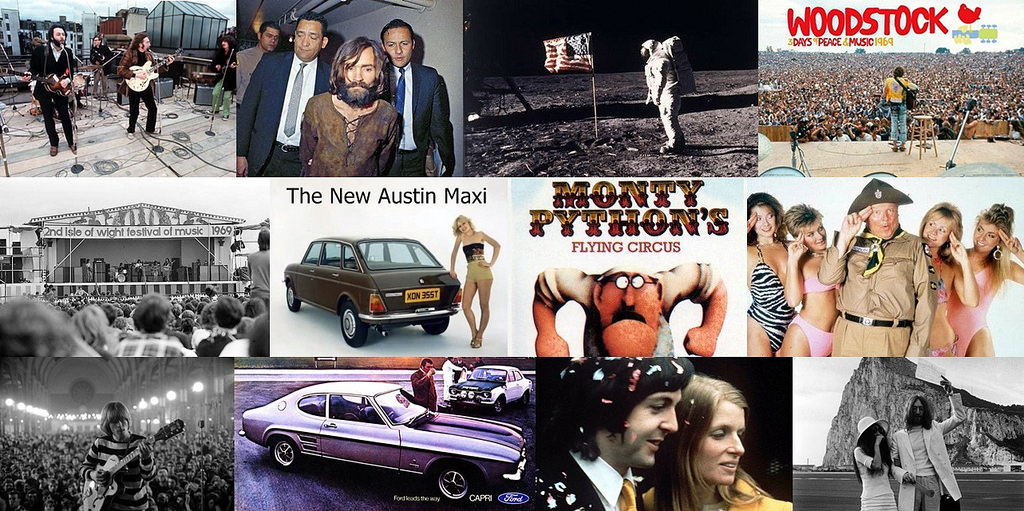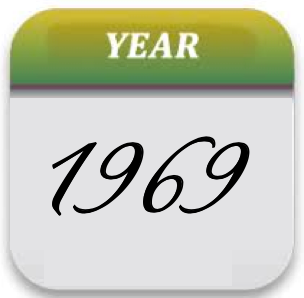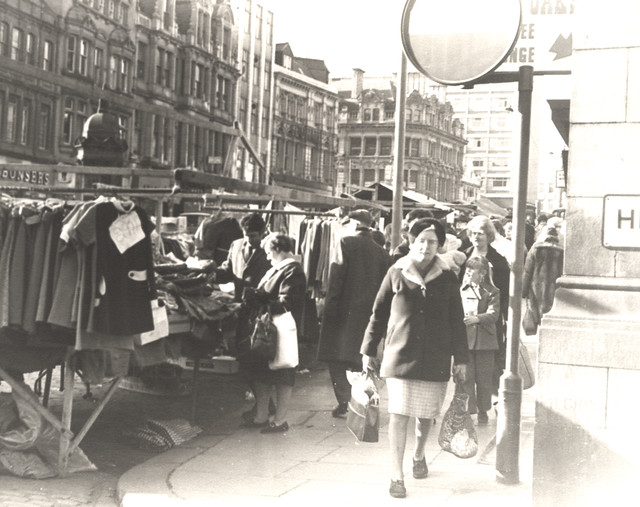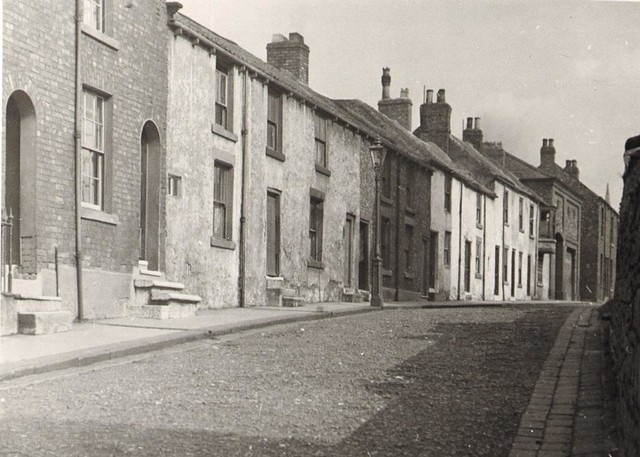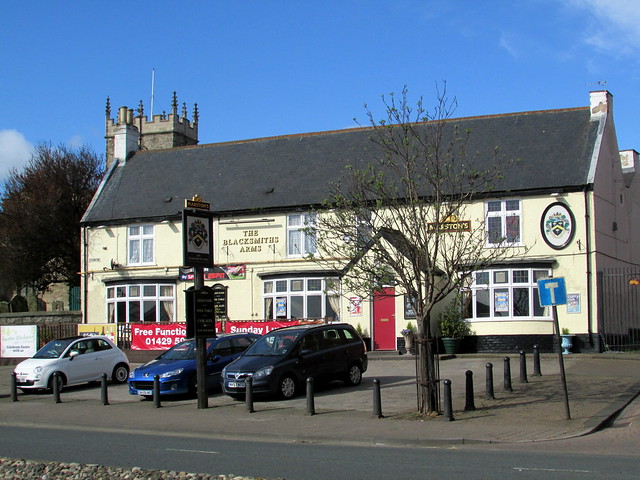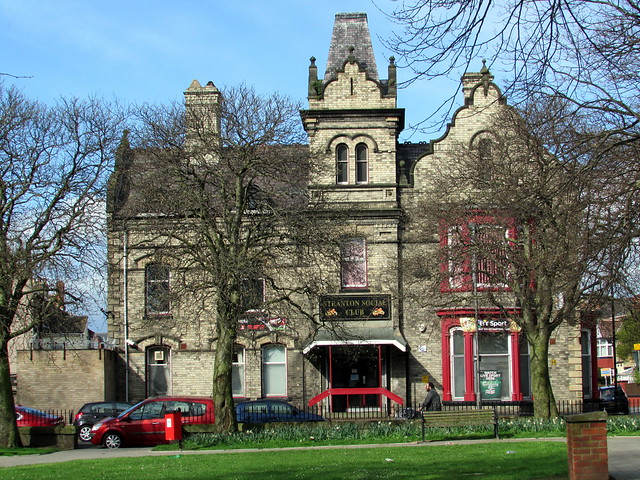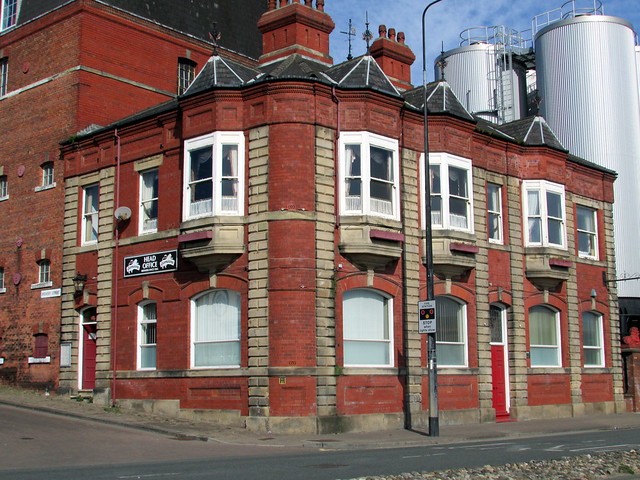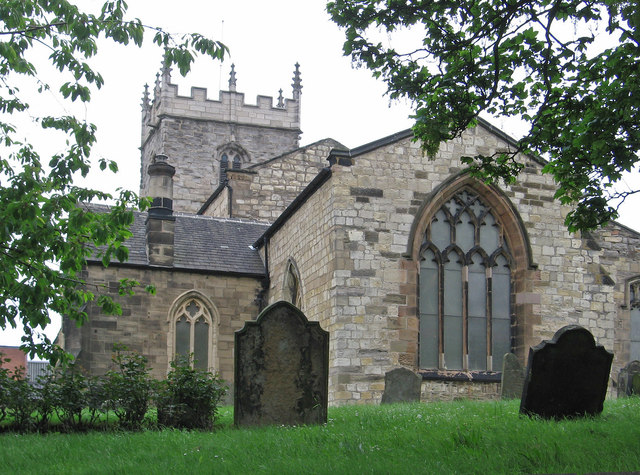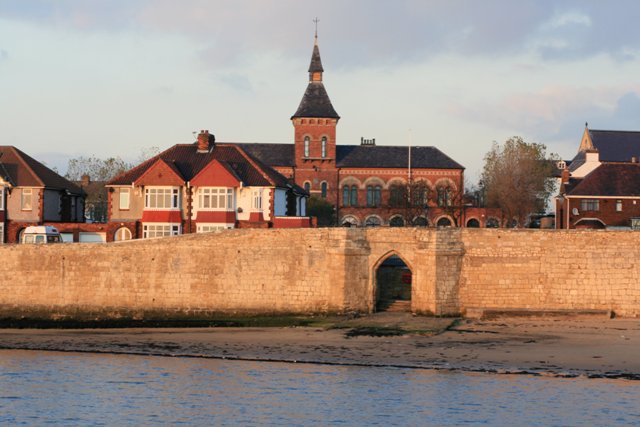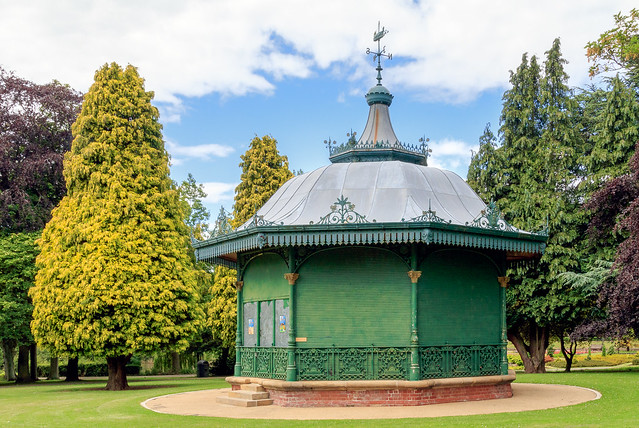That Was the Year That Was - 1969

-
Description
1969 saw the Manson murders, the Stonewall riots, the Woodstock festival and man landing on the moon. The Stonewall riots were a series of spontaneous, violent demonstrations by members of the gay community against a police raid that took place in the early morning hours of June 28, 1969, at the Stonewall Inn, located in the Greenwich Village neighborhood of Manhattan, New York City. They are widely considered to constitute the single most important event leading to the gay liberation movement and the modern fight for LGBT rights in the United States. Charles Manson, who is serving a life sentence for nine murders committed in July and August of 1969 near Hollywood, California. Manson did not actually commit any of the murders, but orchestrated the killings. He was initially sentenced to death, but his sentence was commuted when California's death penalty was overturned in 1972. 1969 On July 20th one of mans crowning achievements occurred when American Astronaut Neil Armstrong became the first human to set foot on the Moon and uttered the immortal words "That's one small step for man, one giant leap for mankind." The British Army was sent into Northern Ireland on August 14, 1969 by the Wilson government as law and order had broken down and the population (mainly Catholics) and property were at grave risk. Between then and 1998 some 300,000 British troops served in Northern Ireland. 1969 - Up to three million people in Britain urgently need re-housing because they are living in damp, overcrowded slum conditions, according to housing charity Shelter. The opposition to the war continued to increase with more and more attending anti war demonstrations and demanding that the US withdrew from Vietnam. The music came from groups including the Doors, Led Zeppelin, Janis Joplin and the Beatles and the most famous music festival of modern times "WOODSTOCK" took place on a New York Farm on August 15th to August 17th with more than 400,000 avid music fans attending to see the Who, Jimi Hendrix, Crosby Stills Nash and Young and others perform live. fashions reflected the anti war sentiment with military jackets adorned with peace signs, and other trends including long unkempt wild hair and headbands showed the feelings of anti establishment felt by the youth. 1969: Woodstock music festival The Woodstock Festival was a three-day concert (which rolled into a fourth day) that involved lots of sex, drugs, and rock 'n roll - plus a lot of mud. The Woodstock Music Festival of 1969 has become an icon of the 1960s hippie counterculture. Thousands of young people are heading home after three days and nights of sex, drugs and rock and roll at the Woodstock music festival. An estimated 400,000 youngsters turned up to hear big-name bands play in a field near the village of Bethel, New York state in what has become the largest rock concert of the decade. About 186,000 tickets were sold so promoters anticipated that around 200,000 would turn up. But on Friday night, the flimsy fences and ticket barriers had come down and organisers announced the concert was free prompting thousands more to head for the concert. Traffic jams eight miles long blocked off the area near White Lake, near Bethel, some 50 miles from the town of Woodstock. Local police estimated a million people were on the road yesterday trying to get to Woodstock. They were overwhelmed by the numbers but were impressed by a good level of behaviour. The festival's chief medical officer, Dr William Abruzzi told Rolling Stone magazine: "These people are really beautiful. There has been no violence whatsoever which is really remarkable for a crowd of this size." Those who made it to the makeshift venue were treated to performances by Janis Joplin, The Who, Grateful Dead, Canned Heat, Crosby, Stills, Nash & Young, Jimi Hendrix, Joan Baez and Ravi Shankar. Rainstorms failed to dampen the spirits of the revellers, many high on marijuana, some dancing naked in the now muddy fields. The main organiser, 49-year-old dairy farmer Max Yasgur, who provided $50,000 and 600 acres of his land, addressed the crowds on the last day of the event. "You have proven something to the world... that half a million kids can get together for fun and music and have nothing but fun and music." There were however two deaths - a teenager was killed by a tractor as he lay in his sleeping bag and another died from a drugs overdose. Woodstock, a holiday centre and artists' colony, had held an arts and music fair since 1906 but the 1969 Woodstock festival made the town world famous. The final cost to the four sponsors - John Roberts, Joel Rosenman, Artie Kornfeld and Michael Lang - was $2.4m. A film of the concert was release the following year and Woodstock became synonymous with flower power, the hippie culture and anti-Vietnam war protests that dominated the 1970s. The "Woodstock generation" look back on the event with nostalgia and an anniversary Woodstock festival was held in 1994. But the second - highly commercialised - anniversary concert in July 1999 ended in riots, fires and at least eight allegations of rape. https://www.youtube.com/watch?v=Wyx053CNMag" rel="nofollow">www.youtube.com/watch?v=Wyx053CNMag Isle of Wight Festival 1969 The 1969 Isle of Wight Festival was held on 29–31 August 1969 at the English town of Wootton, on the Isle of Wight. The festival attracted an audience of approximately 150,000 to see acts including Bob Dylan, The Band, The Who, Free, Joe Cocker, the Bonzo Dog Band and The Moody Blues. It was the second of three music festivals held on the island between 1968 and 1970. Organised by Ronnie and Ray Foulk's Fiery Creations, it became a legendary event, largely owing to the participation of Dylan, who had spent the previous three years in semi-retirement. The event was well managed, in comparison to the recent Woodstock Festival, and trouble-free. The 1969 festival was considerably larger and more popular than the previous year's. Dylan had been little heard of since his allegedly near-fatal motorcycle accident in July 1966. Shunning the Woodstock Festival, held near his home in upstate New York, Dylan was initially reluctant to perform his comeback show on the little-known Isle of Wight. After weeks of negotiations, the Foulk brothers showed him a short film of the island's cultural and literary heritage; this appealed to Dylan's artistic sensibilities, as he was enthusiastic about combining a family holiday with a live performance in Tennyson country. Before the festival, Dylan and his fellow Woodstock residents The Band rehearsed at Forelands Farm in Bembridge, and were joined there by George Harrison, the only "outsider" to have visited him in his enclave in the Catskill Mountains. On Saturday, 30 August, the day before Dylan was to take the stage, Harrison's fellow Beatles John Lennon and Ringo Starr arrived on the island, along with Keith Richards and Charlie Watts of the Rolling Stones, and Eric Clapton. Also seated in the sealed-off VIP area in front of the stage would be Beatle wives Pattie Harrison, Yoko Ono and Maureen Starkey, together with celebrities such as Liz Taylor, Richard Burton, Jane Fonda, Françoise Hardy, Roger Vadim, Syd Barrett, Donald Cammell, Elton John and others. Lennon opined that Dylan's performance was reasonable, though slightly flat; and that expectations were such that the audience was "waiting for Godot or Jesus". Clapton was mesmerised, however, having already been inspired back to blues and country, post-Cream, by Dylan's change of musical direction and by The Band's album Music From Big Pink. "Dylan was fantastic," Clapton later said. "He changed everything ... The audience couldn't understand it. You had to be a musician to understand it." Another champion of both The Band and Dylan, Harrison wrote a country song inspired by the event and dedicated to Dylan, "Behind That Locked Door", released on his 1970 triple album All Things Must Pass. Folk singer Tom Paxton has referred to the "negative reaction in the British press" as "downright fabrications: like saying he had run off stage half-way through". Paxton also recalled: "I went with him and The Beatles to the farmhouse where he was clearly in a merry mood because he had felt it had gone so well … The Beatles had brought a test pressing of Abbey Road and we listened to it and had quite a party." https://www.youtube.com/watch?v=0JaAlXpZetA" rel="nofollow">www.youtube.com/watch?v=0JaAlXpZetA Death of a Rolling Stone Once a Stone always a Stone? Or was guitarist Brian Jones an ex-Stone when he died on July 3 1969? It was Jones who set the Stones rolling with an ad inviting like-minded musicians to audition at the Bricklayers’ Arms, and he is credited with coming up with the band’s name when asked for one by a promoter. But a month before his death he had been edged out of the group because of his erratic behaviour and heavy drug use, his convictions for that use meaning he would be unable to participate in an upcoming tour of the USA. Mystery still surrounds exactly how he came to die. Jones was found at the bottom of the pool at his house – Cotchford Farm – near Hartfield in East Sussex (bizarrely previously owned by A.A. Milne , and the setting for his Winnie the Pooh stories). His liver was found to be enlarged by substance and alcohol abuse, though tests showed he had a fairly small amount of alcohol in his bloodstream and no traces of drugs. The verdict of the subsequent inquest was death by misadventure. Brian Jones was just 27 when he died, though pictures of him taken near that time showed the bloated face of a man who looked much older. For years rumours and allegations have put the case for his sudden death being murder at the hands of a man described as a builder doing work on the house. That man died in 1994. The files have recently been reopened. https://www.youtube.com/watch?v=8yW3-Qj5FQ0" rel="nofollow">www.youtube.com/watch?v=8yW3-Qj5FQ0 The Beatles played their final gig atop 3 Savile Row, London Throughout January 1969, director Michael Lindsay-Hogg (the man who shot the Paperback Writer/Rain and Hey Jude/Revolution promotional shorts) had been filming the dissolution of the biggest band in the world as they rehearsed and recorded the songs that would eventually appear on Let It Be. The decision to move the production from the cavernous confines of Twickenham Studios to the intimate rooms of the new Apple offices at 3 Savile Row in central London was a wise one, immediately thawing the frosty atmosphere that had so far blighted the project. Beatles Press Officer, Derek Taylor: “I was glad when they came back to Apple and were inside the building again. There was a two or three-week period at the end of January when it was nice”. A live concert had been suggested as a way to end the film and so it was that on January 30 The Beatles ascended the stairs at Apple HQ to play live together for the very last time. What followed remains one of the all-time greatest moments in pop culture. https://www.youtube.com/watch?v=NCtzkaL2t_Y" rel="nofollow">www.youtube.com/watch?v=NCtzkaL2t_Y 1969 Timeline January - Secretary of State for Employment and Productivity Barbara Castle published a White Paper In Place of Strife proposing powers of intervention in advance of industrial action. This proved unacceptable to the Trades Union Congress. The Space hopper toy was introduced to Britain. 2 January – Australian media baron Rupert Murdoch purchased the largest selling British Sunday newspaper The News of the World. 4 January – Guitarist Jimi Hendrix caused complaints of arrogance from television producers after playing an impromptu version of "Sunshine of your Love" past his allotted timeslot on the BBC1 show Happening for Lulu. 5 January – Derry Riots left over 100 people injured. 10 January – Protestors in Northern Ireland defied police orders to abandon a planned march. 12 January – Led Zeppelin's eponymous début album is released. 14 January – Sir Matt Busby, hugely successful manager of Manchester United F.C. for the last 24 years, announced his retirement as manager. He would become a director at the end of the season, and hand over first-team duties to current first team trainer and former player Wilf McGuinness. 18 January – Pete Best won his defamation lawsuit against the Beatles. He had originally sought $8 million, but is awarded much less. 24 January – Violent protests by students closed the London School of Economics, which did not re-open for three weeks. Ford launched the Capri, a four-seater sporting coupe designed to compete with the likes of the MGB. 27 January - London School of Economics students occupied the University of London Union building in Malet Street in protest at the closure of the LSE. Reverend Ian Paisley, the hard line Protestant leader in Northern Ireland, was jailed for 3 months for illegal assembly. 30 January – The Beatles gave their last public performance, on the roof of Apple Records. The impromptu concert is broken up by the police. 3 February – John Lennon, George Harrison and Ringo Starr hire Allen Klein as The Beatles' new business manager, against the wishes of Paul McCartney. 4 February – Paul McCartney hires the law firm of Eastman & Eastman, Linda Eastman's father's law firm, as general legal counsel for Apple. 18 February – Pop star Lulu, 20, married Maurice Gibb of the Bee Gees. March – The first B&Q DIY superstore was set up in Southampton by Richard Block and David Quayle. 2 March – The maiden flight of Concorde took place. 4 March – The Kray twins were both found guilty of murder: Ronnie of murdering George Cornell; Reggie of murdering Jack "the Hat" McVitie. 5 March – The Kray twins are sentenced to life imprisonment with a recommended minimum of 30 years by Mr Justice Melford Stevenson. 7 March – The London Underground Victoria line was opened by The Queen. 12 March – Paul McCartney married Linda Eastman. 17 March – The Longhope lifeboat in Scotland was lost; the entire crew of 8 died. 19 March - British paratroopers and Marines landed on the island of Anguilla. The 385 metre tall Emley Moor transmitting station television mast in West Yorkshire collapsed because of icing. 25 March – John Lennon and Yoko Ono married in Gibraltar. 27 March – First ordination of a woman in the Church of Scotland, Catherine McConnachie by the Presbytery of Aberdeen. 29 March – The UK shared first place in the Eurovision Song Contest, with a four-way tie with France, Spain, and the Netherlands. Lulu represents the UK, singing Boom bang-a-bang. 1 April – The Hawker Siddeley Harrier GR.1 V/STOL "Jump Jet" fighter entered service with the RAF. 9 April – Sikh busmen in Wolverhampton won the right to wear turbans on duty. 17 April - Representation of the People Act lowered the voting age from 21 to 18 with effect from February 1970. It also permitted candidates to have a party label included on the ballot paper, and removed the right (theoretically restored in 1967) of convicted prisoners to vote in Parliamentary elections. Bernadette Devlin won the Mid Ulster by-election and became the youngest ever female MP at 21 years old. 20 April – British troops arrived in Northern Ireland to reinforce the Royal Ulster Constabulary. 22 April – Robin Knox-Johnston became the first person to sail around the world solo without stopping. The first complete performance of The Who's rock opera Tommy during a performance in Dolton, Devon, UK Peter Maxwell Davies conducts the premiere performance of his monodrama Eight Songs for a Mad King at the Queen Elizabeth Hall. John Lennon officially changes his name from John Winston Lennon to John Winston Ono Lennon. 24 April - British Leyland Motor Corporation launched Britain's first production hatchback car, the Austin Maxi, designed to compete with family saloons like the Ford Cortina and following a new European design concept started in 1965 by French car maker Renault's R16 range. The final episode of the long-running BBC Radio serial drama Mrs Dale's Diary was broadcast. The Beatles make a $5.1 million counter offer to the Northern Songs stockholders in an attempt to keep Associated TV from controlling the band's music. 26 April – Manchester City F.C. won the FA Cup with a 1-0 win over Leicester City in the Wembley final. 28 April – Leeds United won the Football League First Division title for the first time in their history. 2 May – The ocean liner Queen Elizabeth 2 departed from Southampton on her maiden voyage to New York. 23 May – The Who released the concept album Tommy. 2 June – John Lennon and Yoko Ono host a "Bed-In" at the Queen Elizabeth Hotel in Montreal, Canada. The couple records the song "Give Peace a Chance" live in their suite with Tommy Smothers, Timothy Leary, and several others. 13 June – Mick Taylor joins the Rolling Stones. 21 June – The showing of television documentary The Royal Family, attracted more than 30.6 million viewers, an all-time British record for a non-current event programme. Patrick Troughton made his final appearance as the second Doctor in Doctor Who in the final episode of The War Games which was also the last episode to be recorded only in black and white. 24 June – After a referendum in Rhodesia decided in favour of becoming a Republic, the Governor of Southern Rhodesia Sir Humphrey Gibbs left Government House, severing the last diplomatic links with the United Kingdom. 29 June – Bass player Noel Redding announces to the media that he has quit the Jimi Hendrix Experience, having effectively done so during the recording of Electric Ladyland. 30 June – Two members of the Mudiad Amddiffyn Cymru (Movement for the Defence of Wales) were killed whilst placing a bomb outside government offices in Abergele in an attempt to disrupt the following day's events. 1 July – Charles, Prince of Wales, was invested with his title at Caernarfon. John Lennon, Yoko Ono and their children were hospitalised at Golspie in Scotland following a car accident while on holiday. 3 July – Swansea was granted city status. 3 July – Brian Jones is found dead in the swimming pool at his home in Sussex, England, almost a month after leaving The Rolling Stones. 3 July – Lulu the elephant runs amok on Blue Peter. The clip is subsequently repeated many times, becoming the archetypal British TV "blooper". 10 July – The trimaran Teignmouth Electron of Donald Crowhurst was found drifting and unoccupied in Mid-Atlantic. It is discovered that Crowhurst had been falsifying his position in a Round the World yacht race and presumed that he committed suicide. 5 July – The Rolling Stones proceed with a free concert in Hyde Park, London, as a tribute to Brian Jones; it is also the band's first concert with guitarist Mick Taylor. Estimates of the audience range from 250,000 to 400,000. 12 July – Golfer Tony Jacklin won The Open Championship. 19 July - British Grand Prix held at the Silverstone Circuit, Jackie Stewart was victorious, as he lapped the entire field and took his fifth win in six races. 20–21 July – A live transmission from the Moon is viewed by 720 million people around the world, with the landing of Apollo 11: at 10:56 p.m. EDT on 20 July 1969, Neil Armstrong stepped onto the surface of the Moon, broadcast live. 23 July – BBC Two television first aired the Pot Black snooker tournament. 24 July – British lecturer Gerald Brooke was freed from a Soviet prison in exchange for the spies Morris and Lona Cohen. 1 August – The pre-decimal halfpenny ceased to be legal tender. 12 August – Rioting broke out in Derry, Northern Ireland in the Battle of the Bogside, the first major confrontation of The Troubles. 13 – 17 August - Sectarian rioting in Northern Ireland. 13 August – The Taoiseach of the Republic of Ireland, Jack Lynch, made a speech on Teilifís Éireann saying that his government "can no longer stand by" and requesting a United Nations peacekeeping force for Northern Ireland. 14 August – British troops were deployed in Northern Ireland to restore law and order. 30 – 31 August - The second Isle of Wight Festival attracted 150,000 pop music fans, with the appearance of Bob Dylan a major draw. 2 September - Release of The Stones in the Park, footage of a Rolling Stones concert given in London's Hyde Park in July and filmed by Granada Television. 11 September – The housing charity Shelter released a report claiming that there are up to 3 million people in need of rehousing due to poor living conditions. 13 September – John Lennon and Plastic Ono Band perform at the Toronto Rock and Roll Revival 12-hour music festival, backed by Eric Clapton, Klaus Voormann and Alan White. It is Lennon's first-ever public rock performance without one or more of The Beatles since meeting Paul McCartney in 1957. He decides before returning to Britain to leave The Beatles permanently. 16 September – Iconic 1960s fashion store Biba reopened on Kensington High Street. 21 September – Police evicted squatters from the London Street Commune. 21 September – Randall and Hopkirk (Deceased) premieres on ITV. 26 September – The Beatles released what would be their final album (Abbey Road) recorded together. 28 September – The National Trust acquired ownership of the island of Lundy. 1 October – The Post Office became a Statutory corporation. 4 October – The ITV Seven, a programme which shows live coverage of horse racing from racecourses around the UK, is first aired. The programme was an essential part of ITV's Saturday afternoon World of Sport show and continued until a few weeks before World of Sport ended in 1985. 5 October – Monty Python's Flying Circus aired its first episode on the BBC. 6 October – Chigley becomes the third and final programme of The Trumptonshire Trilogy on BBC1 to be shot in colour before the introduction of regular colour broadcasting on 15 November. 10 October – The government accepted the recommendations of Lord Hunt's report on policing in Northern Ireland including the abolition of the Ulster Special Constabulary. 14 October - The new seven-sided 50p coin was introduced as replacement for the 10-shilling note, to a mixed reception from the British public, with many people complaining that it is easily confused with the 10p coin. With a general election due within the next 18 months, opinion polls showed that the Tories were comfortably ahead of Labour, by up to 24 points. 16 October – Peter Nichols' black comedy The National Health was premiered by the National Theatre at the Old Vic in London. November – Ken Loach's film Kes was released at the London Film Festival. 3 November – ITV airs the first edition of Coronation Street to be videotaped in colour, though it includes black-and-white inserts and titles. The 29 October episode – featuring a coach trip to the Lake District – had been scheduled for colour shooting, but suitable colour film stock could not be found so it was filmed in black-and-white. 7 November – The Rolling Stones open their US tour in Fort Collins, Colorado. 15 November – Regular colour television broadcasts began on BBC1 and ITV. 16 November – BBC1 first aired the children's television series Clangers, made by Oliver Postgate and Peter Firmin's Smallfilms in stop motion animation. 17 November – The Sun newspaper was relaunched as a tabloid under the ownership of Rupert Murdoch. 19 November – The Benny Hill Show premieres on Thames Television. 21 November – The controversial London Weekend Television comedy Curry and Chips begins airing. The programme is the first LWT comedy to have been recorded in colour. It is pulled off air after six episodes following a ruling by the IBA that it is racist. 24 November – Date claimed by official Coronation Street archivist Daran Little as the first on which the soap was transmitted in colour. 25 November – John Lennon returned his MBE to protest against the British government's involvement in Biafra and support of the U.S. war in Vietnam. 10 December – Derek Harold Richard Barton won the Nobel Prize in Chemistry jointly with Odd Hassel "for their contributions to the development of the concept of conformation and its application in chemistry". 18 December - The abolition of the death penalty for murder was made permanent by Parliament. Release of Fairport Convention's pioneering folk rock album Liege & Lief. The sixth James Bond film - On Her Majesty's Secret Service - was released in British cinemas. Bond is now played by George Lazenby after Sean Connery starred in the first five films. Starring alongside him is Yorkshire-born actress Diana Rigg. 26 December – A fire at the Rose and Crown Hotel, Saffron Walden, killed eleven. The Chancellor of the Exchequer Roy Jenkins introduced Mortgage Interest Relief at Source (MIRAS) to encourage home ownership; it allowed borrowers tax relief for interest payments on their mortgage. Golden eagles were found to be nesting in England for the first time in modern history, at Haweswater in the Lake District. Completion of the Castle Vale estate in Birmingham, one of the largest housing estates in Europe, consisting mostly of council houses and low-rise flats as well as 34 tower blocks, the first of which were occupied in 1964. 1969 Television BBC1 2 January – The Holiday Programme (1969–2007) 14 April – The Liver Birds (1969; 1971–1979, 1996) 9 September – Nationwide (1969–1983) 17 September – Up Pompeii! (1969–1975, 1991) 5 October – Monty Python's Flying Circus (1969–1974) 6 October – The Trumptonshire Trilogy: Chigley (1969) 16 November – Clangers (1969–1972) BBC2 14 March – Q (1969–1982) ITV 28 February – On the Buses (1969–1973) 21 September The Flaxton Boys (1969–1973) Randall and Hopkirk (Deceased) (1969–1970) The Secret Service (1969) 19 November – The Benny Hill Show (1969–1989) 1969 Football First Division - Leeds United Second Division - Derby County Third Division - Watford Fourth Division - Doncaster Rovers FA Cup - Manchester City League Cup - Swindon Town Charity Shield - Manchester City Home Championship - England -
Owner
brizzle born and bred -
Source
Flickr (Flickr) -
License
What does this mean? Attribution-NonCommercial-ShareAlike License
-
Further information
Link: https://www.flickr.com/photos/20654194@N07/17402092081/
Resource type: Image
Added by: Peter Smith
Last modified: 7 years, 11 months ago
Viewed: 1176 times
Picture Taken: 2015-05-07T12:23:04 -
Co-Curate tags
